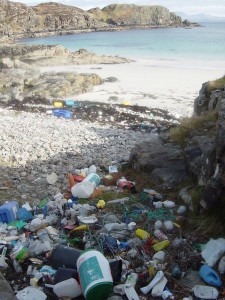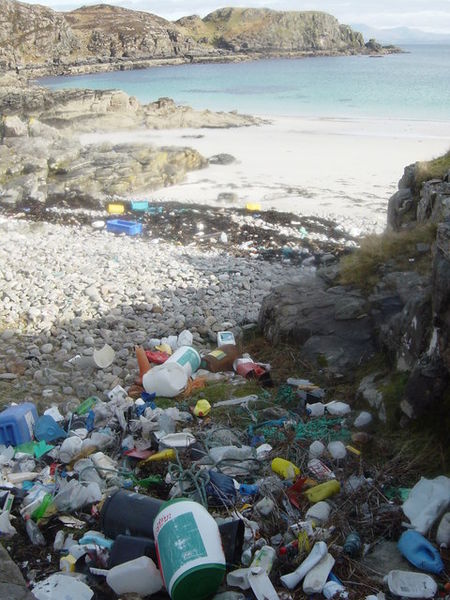Below is a sobering story of a yachtsman who, in a recent voyage from Australia to Japan, observed some disturbing telltale signs in the oceans. While fish were scarce, human debris littering the ocean was apparently plentiful.
debris littering the ocean was apparently plentiful.
An Australian sailor has described parts of the Pacific Ocean as “dead” because of severe overfishing, with his vessel having to repeatedly swerve debris for thousands of kilometres on a journey from Australia to Japan.
Ivan MacFadyen told of his horror at the severe lack of marine life and copious amounts of rubbish witnessed on a yacht race between Melbourne and Osaka. He recently returned from the trip, which he previously completed 10 years ago.
“In 2003, I caught a fish every day,” he told Guardian Australia. “Ten years later to the day, sailing almost exactly the same course, I caught nothing. It started to strike me the closer we got to Japan that the ocean was dead.
“Normally when you are sailing a yacht, there are one or two pods of dolphins playing by the boat, or sharks, or turtles or whales. There are usually birds feeding by the boat. But there was none of that. I’ve been sailing for 35 years and it’s only when these things aren’t there that you notice them.
MacFadyen said that the lack of ocean life started at the edge of the Great Barrier Reef, describing Queensland waters as “barren” and “unquestionably overfished”.
The entire story can be found here in The Guardian. Aside from the extreme offense to one’s aesthetic sensibilities and the hazards posed to ocean-travelers, ocean debris remains a huge risk to marine wildlife and fisheries. I’ve posted previously here on the accumulation of such large amounts of plastic and human debris in portions of the Pacific Ocean, it’s been dubbed the Great Pacific Garbage Patch. Another story here on the Garbage Patch from the LA Times. I’m pleased to see that NOAA this month launched 11 new initiatives aimed at prevention, education and outreach to address this growing problem. While plastics may have offered us greater convenience, they have created serious challenges for the environment, fish and other living critters. This is a problem that is fixable and we must fix it.

